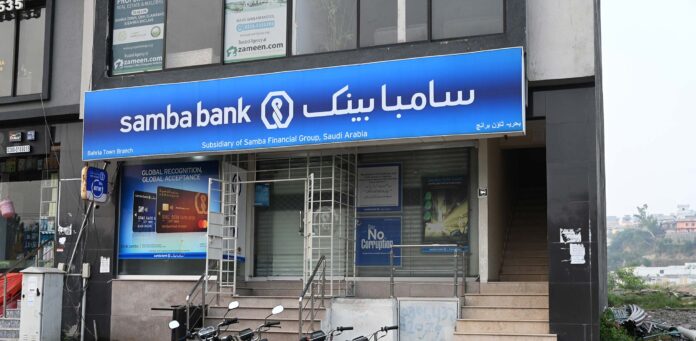In 2021 Samba Bank decided to put the “For Sale” sign out in the yard. For anyone in Pakistan looking to buy a bank, it was a perfect opportunity. Samba was up for sale not because it was doing badly, but simply because the ownership of Samba’s parent company in Saudi Arabia was changing.
The bank itself was small (the smallest commercial bank in Pakistan in fact), clean, and well-run. Samba was the suburban white picket home of bank shopping. Which is why a number of buyers stepped up to the plate ranging from United Bank (UBL) to Askari Bank and a consortium led by Fatima Fertiliser.
Despite the interest, Samba failed to strike a deal with any of the potential buyers. In fact in May 2022, the bank announced it was terminating the process for the sale due to “unstable market conditions.” It seemed the new owners of Samba’s parent companies were starting to catch up to Pakistan’s smallest commercial bank. Now after just under two years, Bank Alfalah has made a non-binding indicative offer to the bank’s Saudi owners to acquire their entire shareholding in Samba Pakistan. In turn, the Saudis have agreed to evaluate the non-binding offer and invited Bank Alfalah to conduct diligence on Samba Pakistan.
To put it in very simple terms, the sale is back on the table. But what were the circumstances that led to the bank to go on sale, go off the market, and then once again be up for grabs? To understand, we go back to Samba Bank’s origins in Pakistan. The content in this publication is expensive to produce. But unlike other journalistic outfits, business publications have to cover the very organizations that directly give them advertisements. Hence, this large source of revenue, which is the lifeblood of other media houses, is severely compromised on account of Profit’s no-compromise policy when it comes to our reporting. No wonder, Profit has lost multiple ad deals, worth tens of millions of rupees, due to stories that held big businesses to account. Hence, for our work to continue unfettered, it must be supported by discerning readers who know the value of quality business journalism, not just for the economy but for the society as a whole.To read the full article, subscribe and support independent business journalism in Pakistan


























Its a big piece of information about the current affairs. Thanks.